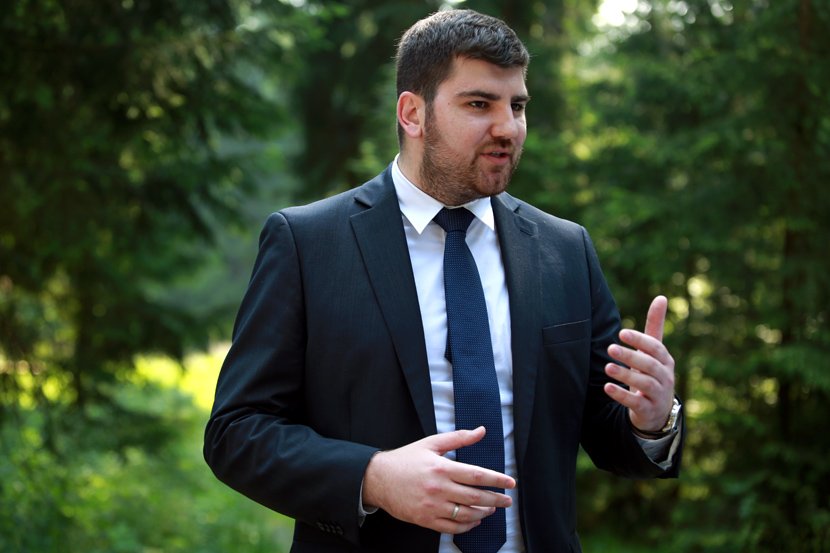The effect of the crisis of the political establishment in Europe on the affinity of the voters
We are witnessing a trend of accelerated growth in the popularity of various newly formed movements and non-traditional parties in European countries.
The election cycles in Europe, and especially in central European countries, such as the Czech Republic, where parliamentary elections were recently held, clearly show that the positions of traditional parties on the old continent are shaken. In the aforementioned elections in the Czech Republic held in October 2017, movements and non-traditional parties won over 50 percent of the votes. It should be borne in mind that the Czech Republic is not burdened with migrant crisis and, according to economic indicators, is among the most successful countries in Europe.

The Czech Republic has the lowest unemployment rate, it has one of the highest projected growth rates, while the Czech koruna is the currency that has strengthened the most compared to Euro in the past year. On the other hand, the Social Democrats, as the main pillar of the previous ruling coalition, suffered a heavy defeat in the recently held elections, achieving almost three times worse result compared to the 2013 elections. Unlike the then-first place, they are now in the sixth place in the number of votes with their election list. Three of the four first-ranked lists are made up of two movements and one non-traditional party, which resulted in the appearance of more than 100 new people in the lower house of the Czech parliament, which has a total of 200 seats.
This ratio of power causes the instability of a government that, although formed, has not yet secured the confidence of the parliament, as well as the additional confusion of voters before the presidential election, since none of the traditional parties has their direct candidate. Confusion in the political scenes of the countries of the Visegrad Group, but also of other European countries, depending on local specificities, and greater or lesser burden on common open issues, is equally present.

The answer to the question why do such changes in voters' affinity in EU countries occur should be sought in several factors of key influence. First of all, it should be borne in mind that voter preferences are changing due to a better economic situation and a higher standard of living. Almost the same as the difficult conditions of life, such as war and poverty, which successfully unite wide and diverse groups of dissatisfied and affected citizens, also in the absence of serious problems that directly affect the quality of life of an individual, the interest in political issues decreases.
The work of responsible politicians is to point out potential problems even when they are not at the door, which are often not adequately recognized, despite the reduced interest of the individual that appears in proportion to the frequency and intensity of threats to the existing order. In countries with an increased living standard of citizens, political actors acquire political affirmation without responsibility and the base support in the tradition of political thought and action, without any pedigree, ideology or program. In this way, non-traditional parties and movements use fertile soil for populism and profit by abusing the absence of an adequate platform for action to address the serious problems that the EU faces, among which is certainly the migrant crisis.

On one hand, we have successful internal policies without looking at global threats and without solutions for external challenges, but on the other hand growing populists, who do not offer adequate solutions to external challenges but also endanger the internal interests of their countries. In Europe, which is fragile and without answers to numerous questions, such a trend threatens to cause great damage. Due to massive criticism of EU policy by political actors who do not offer an alternative and sustainable solutions to migration, but also due to other open issues related to the EU's common foreign and security policy, traditional parties are losing a step in the match against opponents who can easily score, ignoring the rules and the principle of responsibility.
The problem of one of a kind lukewarmness and inner negative selection certainly contributes to this, which results in a reduced number of qualified and quality people in political parties. The isolation as a feature of the unreasonable form of action, with a narrow focus, the lack of filtering of your own members and the absence of prompt reactions to new events, creates an unwanted society from traditional parties for new positions which could help with solving the problems in positioning and the identity crisis with their future involvement. In this way, politics excludes the elite, who then, sitting with their crossed hands, criticize politics.
Finally, it's impossible to perceive this problem without looking at the roles of EU institutions, which, in cooperation with the governments of member states and traditional parties, whose representatives are already occupying the highest positions in EU institutions, should create a new platform for EU action with top politicians at the helm, and not with some unaccomplished people with no credibility, usually cast away from their own environment, with no adequate experience or any vision of the future whatsoever.
The EU, as an international organization with a tendency to be much more than an economic community, has to help all European countries rebuild the roles of the keepers of the core values of modern society, and each country has to help the EU by providing it with the best it has.
(Telegraf.rs/ Stefan Tomašević)
Video: U toku su pregovori ruskih akcionara sa mađarskim MOL-om o izlasku ruskog vlasništva iz NIS-a
Telegraf.rs zadržava sva prava nad sadržajem. Za preuzimanje sadržaja pogledajte uputstva na stranici Uslovi korišćenja.

